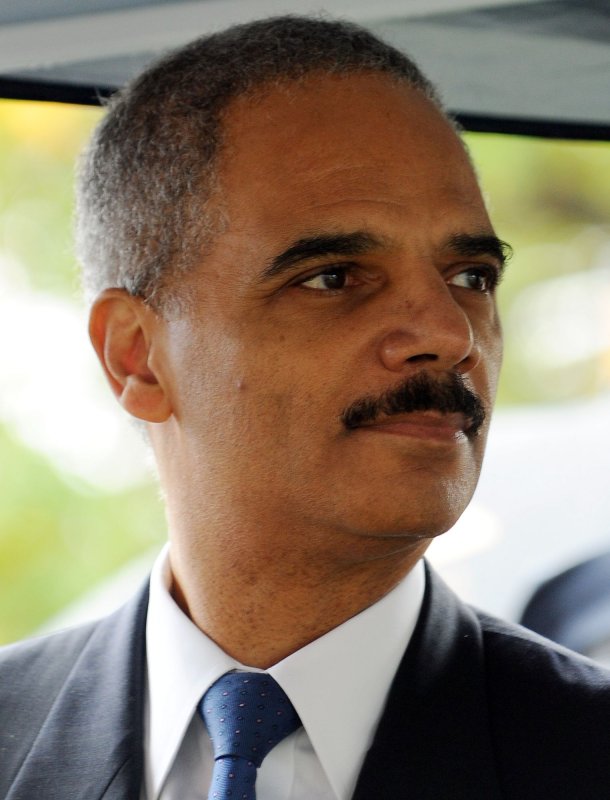1 of 3 | Attorney General Eric Holder in Washington, Oct. 14, 2010. UPI/Roger L. Wollenberg |
License Photo
RICHMOND, Va., Dec. 13 (UPI) -- A federal judge in Richmond, Va., ruled Monday a key part of the federal healthcare law is unconstitutional.
U.S. District Judge Henry Hudson ruled a provision of the law forcing all Americans to have at least minimum healthcare insurance, or face a fine, exceeded congressional authority.
Hudson upheld other provisions of the healthcare law, but said he would not hold up the implementation of the law while various challenges make their way through the courts, USA Today reported. He said much of the law does not come into effect until 2014.
"The outcome of this case has significant public policy implications. And the final word will undoubtedly reside with a higher court," Hudson said, indicating the U.S. Supreme Court will have the final say.
The Virginia suit is one of a handful of challenges across the country.
Hudson's ruling conflicts with that of another federal judge in Virginia. U.S. District Judge Norman Moon rejected a challenge by Liberty University last month.
Moon, a Bill Clinton appointee, said because almost everyone requires healthcare, deciding to buy health insurance is not simply a matter of individual choice, and the mandate is constitutional.
The suit in Richmond was brought before Hudson, a George W. Bush appointee, by Virginia Attorney General Ken Cuccinelli, a Republican. The suit contended the healthcare law could not be enacted under Congress' constitutional power to regulate interstate commerce, the Times said.
Cuccinelli wanted to keep the entire law from being implemented.
In an op-ed piece posted Monday on The Washington Post online, U.S. Attorney General Eric Holder and Health and Human Services Secretary Kathleen Sebelius assert the Affordable Care Act will withstand court challenges to its constitutionality, saying opponents "have sought to invent new constitutional theories and dig up old ones that were rejected 80 years ago."
"The individual responsibility provision says that as participants in the health-care market, Americans should pay for insurance if they can afford it. That's important because when people who don't have insurance show up at emergency rooms, we don't deny them care," Holder and Sebelius wrote. "The costs of this uncompensated care - $43 billion in 2008 - are then passed on to doctors, hospitals, small businesses and Americans who have insurance.
"As two federal courts have already held, this unfair cost-shifting harms the marketplace."
Holder and Sebelius said Supreme Court decisions have upheld congressional authority to "adopt rules to deal with such harmful economic effects, which is what the law does."
A federal judge in Florida ruled in October a separate challenge to the law brought by 21 states could proceed. The judge is scheduled to hear oral arguments Thursday.
However, a judge in Michigan dismissed a separate suit.
In addition, a federal judge in New Jersey last week rejected a challenge by a non-profit physicians group, which argued the law prevents doctors from accepting payment directly from a patient, The Hill newspaper reported.
The Hill said the Florida and Virginia cases are likely to be heard in the U.S. Supreme Court, and Monday's ruling in Virginia could encourage the new Republican majority in the U.S. House to try to repeal the healthcare law.















